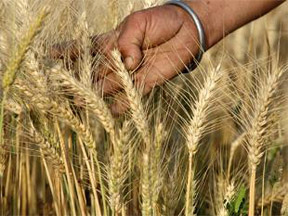 ISLAMABAD: India has sought permission from Pakistan to export over a million tonnes of wheat through its territory to Afghanistan, a move opposed by the local milling industry which fears losing vast Afghan market due to cheap Indian supplies.
ISLAMABAD: India has sought permission from Pakistan to export over a million tonnes of wheat through its territory to Afghanistan, a move opposed by the local milling industry which fears losing vast Afghan market due to cheap Indian supplies.
The Indians have sought permission to export over a million tonnes of wheat to Afghanistan through Pakistan’s land route but the flour milling industry here is exerting pressure on the government to deny the permission, the Dawn reported.
The local industry has threatened to launch protests if the PML-N government grants the permission to India, it said.
“The industry thinks that subsidised Indian wheat would drive it out of the Afghan market, which it takes more of an extension of its business for two reasons: proximity and high profits,” said the paper.
It is not only the general subsidy on farm inputs that makes the Indian wheat cheaper as compared to Pakistan, but the Indian government, if the Pakistani industry is to be believed, has also offered a USD 50 per tonne additional subsidy to exporters, thus driving the price further down, the paper said.
Indian wheat would cost Pakistani Rupees 2,900 per tonne in Afghanistan, against Pakistani price of Rs 3,400 per tonne.
This difference of Rs 500 per tonne is bound to tilt the competitive edge in favour of the Indian wheat and Pakistan would lose its traditional market that consumes over half a million tonne of flour from Pakistan, the Dawn said.
Transit trade facility for India, for business with Afghanistan, has a strategic dimension to it, rather than being purely a commercial activity. That is precisely the point where Pakistan needs to clarify its position.
Cheaper Indian exports would hit the entire Pakistani milling industry business cycle and the previous payments of flour to the Afghan market supplied on credit would get stuck.
The possible permission has also revived old fears of farmers.
The Indian wheat carries Karnal Brunt (a kind of disease), that they think would spread in Pakistan if wheat is allowed to be traded through the country.
Given the porous nature of Afghan transit trade and borders, they fear that the disease-carrying Indian wheat may be diverted to Pakistan and destroy its wheat base.
Historically, the farmers have never objected to the export of flour to Afghanistan, but they have always been apprehensive about allowing Indian wheat through Pakistan.
The industry has successfully rekindled their fears and enlisted required support to put pressure on the government, the paper added.–PTI






